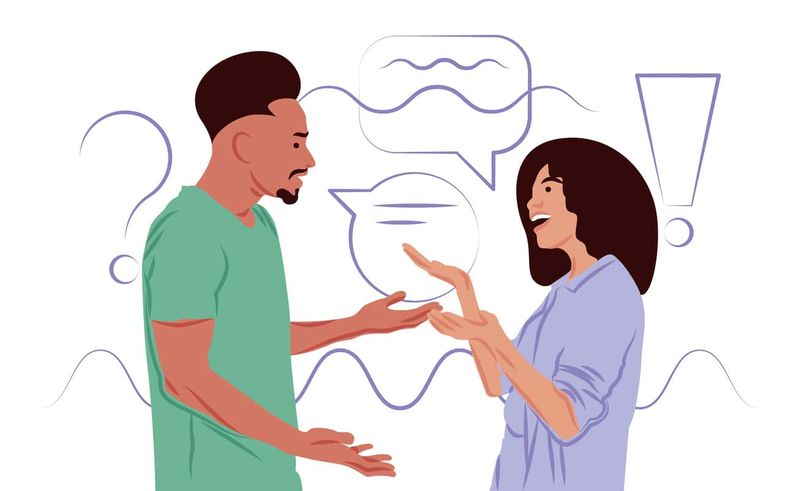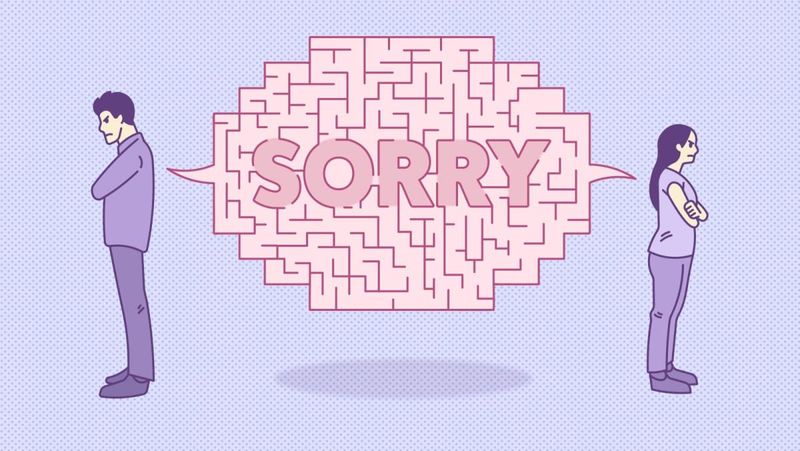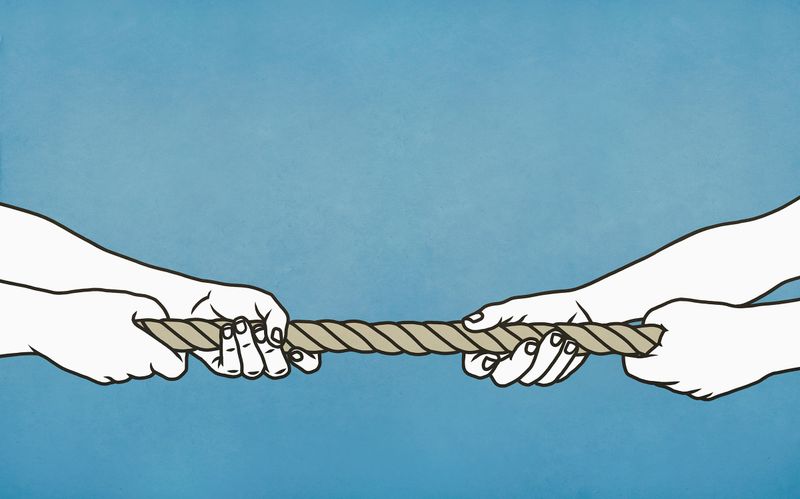Relationships can be beautiful, but they also come with their fair share of challenges. Couples often find themselves in disagreements that, if unresolved, can lead to serious consequences, including divorce.
Psychologists have identified 17 common conflict areas that tend to erode the love between partners over time. Understanding these can help couples navigate their relationship more effectively, creating a healthier and more communicative partnership.
1. One partner always feels like the “fixer”
Feeling like the perpetual “fixer” can be exhausting in a relationship. It’s not just about solving problems but feeling responsible for the emotional and practical well-being of the partnership. This dynamic often leads to resentment, as the “fixer” may feel unappreciated and burdened, while the other partner can feel infantilized.
Such roles can stifle growth, limiting the less involved partner from taking initiative or responsibility. Over time, this imbalance may cause frustration and dissatisfaction, eroding trust and respect. A healthy relationship requires shared responsibility and the ability to support each other without one person feeling like they have to carry the entire weight.
Addressing this issue often requires open communication and a willingness to redefine roles.
2. Arguments over chores become about respect
Chores may seem mundane, but they often become a battleground for deeper issues like respect and equality. When couples argue over household tasks, it’s rarely about the chores themselves but what they symbolize—appreciation, fairness, and mutual effort.
Uneven distribution of chores can lead to feelings of disrespect and being undervalued, causing bitterness to seep into other areas of the relationship. Over time, these seemingly small disagreements can build up, leading to larger conflicts about overall contributions to the relationship.
To mitigate this, couples need to engage in honest discussions about expectations and workloads, ensuring that both partners feel heard and valued in their shared home life.
3. Silent treatment replaces conversation
The silent treatment can be more damaging than a heated argument. When communication breaks down and silence fills the void, partners may feel isolated and unloved. This passive-aggressive behavior often stems from a place of hurt or misunderstanding.
Instead of resolving issues, silence creates emotional distance, leaving problems festering below the surface. Over time, this can lead to a breakdown of trust and connection, as partners feel unable to express their needs or concerns.
To break the cycle, both individuals must prioritize open communication, even when it feels uncomfortable. Relearning how to discuss issues constructively can rebuild intimacy and understanding, bringing the couple closer together.
4. Money habits create constant power struggles
Money is a leading cause of tension in relationships, often representing more than just financial stress. It symbolizes control, security, and freedom. Disagreements over spending, saving, or debt can lead to power struggles, with each partner trying to assert their financial philosophy.
These conflicts can create a divide, where one partner is seen as the “spender” and the other as the “saver,” fostering mistrust and division. Over time, unresolved financial disagreements can undermine the relationship’s foundation.
Couples can benefit from open discussions about financial goals and values, finding common ground to work towards a balanced and respectful financial partnership.
5. Family boundaries get ignored
Family dynamics can strain even the strongest relationships. When boundaries with extended family are ignored, partners may feel overwhelmed or marginalized. This issue often arises when one partner’s family is overly involved, leading to conflicts about loyalty and priorities.
Ignoring these boundaries can result in resentment, as the affected partner may feel their needs are secondary to family expectations. Over time, this can lead to larger conflicts about identity and autonomy within the relationship.
Establishing and respecting clear boundaries with family members is crucial for maintaining harmony and ensuring both partners feel valued and prioritized.
6. One person constantly dismisses emotions
Dismissing a partner’s emotions can lead to a breakdown in communication and trust. When one person consistently invalidates the other’s feelings, it sends a message that their emotions are unimportant or overreactive.
This behavior can create a cycle of disconnection, where the dismissed partner feels misunderstood and undervalued. Over time, emotional suppression can lead to frustration and disengagement, eroding the relationship’s emotional intimacy.
To cultivate a supportive environment, both partners should practice active listening and empathy, acknowledging each other’s emotions as valid and worthy of discussion.
7. There’s no apology—just moving on
In any relationship, the absence of genuine apologies can hinder growth and healing. When conflicts arise, simply moving on without addressing the hurt can leave unresolved feelings simmering beneath the surface.
An apology signifies acknowledgment of wrongdoing and a willingness to mend the rift. Without it, partners may feel uncared for and invalidated, fostering resentment and distance over time.
Couples need to embrace vulnerability, acknowledging mistakes and offering sincere apologies. This practice not only heals wounds but also strengthens the bond and promotes a culture of forgiveness and understanding.
8. Parenting disagreements become personal
Parenting can be a rewarding journey, but differing views can transform disagreements into personal attacks. When partners clash over parenting styles, it often touches on core values and personal identity, making conflicts deeply personal.
Unresolved disagreements can lead to feelings of inadequacy or defensiveness, as each partner may feel judged or undermined. Over time, these conflicts can affect the partnership, creating a divide that extends beyond parenting.
Finding common ground requires patience and empathy, focusing on shared goals for the children’s well-being. Open discussions can help create a balanced approach, respecting both partners’ viewpoints.
9. Jealousy disguises itself as “protectiveness”
Jealousy can often masquerade as protectiveness, but its roots lie in insecurity and mistrust. When one partner oversteps boundaries under the guise of protection, it can stifle the other’s independence and breed resentment.
This behavior can create a cycle of control and resistance, where the “protected” partner feels suffocated and the other increasingly anxious. Over time, jealousy erodes trust, creating an environment of suspicion and defensiveness.
Addressing these feelings openly and honestly is key. Couples must differentiate between genuine protection and controlling behaviors, fostering a relationship built on trust and mutual respect.
10. Emotional needs are minimized
Minimizing a partner’s emotional needs can lead to feelings of neglect and isolation. When one person downplays the other’s emotions, it signals a lack of empathy and understanding, creating an emotional gap.
This disregard can cause the affected partner to withdraw, feeling unsupported and undervalued. Over time, such emotional neglect can lead to disconnection, as partners are unable to rely on each other for support.
To foster a nurturing environment, couples should prioritize emotional attunement, actively engaging in each other’s needs and affirming their significance. Building emotional resilience together strengthens the relationship’s foundation.
11. One partner refuses to grow or change
Growth is essential for both individuals and relationships. When one partner is unwilling to evolve, it can create stagnation and dissatisfaction. This resistance often stems from fear or comfort in the status quo.
Over time, the more adaptable partner may feel frustrated, as their aspirations and needs go unfulfilled. This imbalance can lead to feelings of being held back, as the relationship fails to progress.
Encouraging mutual growth requires open dialogue and a willingness to explore new ideas and experiences together. Supporting each other’s development ensures that both partners feel fulfilled and aligned.
12. Past mistakes get brought up like ammo
Revisiting past mistakes during conflicts can be destructive. Using previous errors as ammunition often leads to defensiveness and hostility, preventing resolution and understanding.
This tactic can create a cycle of blame and guilt, where partners feel trapped in past grievances rather than focusing on present solutions. Over time, it erodes trust and prevents healing.
Focusing on the present and future, rather than past missteps, is vital. Couples should practice forgiveness and empathy, nurturing an environment where both can learn and grow without fear of recrimination.
13. Quality time disappears completely
Quality time is the cornerstone of connection in a relationship. When it disappears, partners may begin to feel like strangers. The hustle of daily life can overshadow the need for meaningful interaction, leading to emotional distance.
Without intentional time together, partners can drift apart, losing the sense of partnership and shared purpose. This absence of connection can create a sense of loneliness, even when physically together.
Rekindling this intimacy requires deliberate effort, carving out time to engage in shared activities or conversations that strengthen the bond. Intentional presence helps maintain the relationship’s vitality.
14. They fight to “win” instead of connect
Arguments in a relationship should aim to resolve, not to win. When partners prioritize victory over understanding, the focus shifts from connection to competition.
This approach often leads to defensiveness and escalation, where neither partner feels heard or validated. Over time, the relationship can suffer as conflicts become battlegrounds rather than opportunities for growth.
Shifting the goal from winning to understanding fosters empathy and collaboration. By listening and acknowledging each other’s perspectives, couples can resolve disagreements in a way that strengthens their bond.
15. There’s no curiosity left about each other
Curiosity is the fuel that keeps relationships dynamic and engaging. When partners lose interest in each other’s thoughts and experiences, the relationship can become stagnant.
Without curiosity, communication dwindles, and partners may feel disconnected and unimportant. This lack of interest suggests complacency, where neither seeks to deepen their understanding of the other.
Reigniting curiosity involves intentional engagement, asking questions, and showing genuine interest in each other’s lives. This practice revitalizes connection, reminding partners of the depth and richness of their shared journey.
16. Resentment simmers under every small issue
Resentment is a silent relationship killer, often simmering beneath the surface. When small issues trigger disproportionate responses, it’s usually a sign of unresolved resentment.
This accumulation of unspoken grievances can lead to explosive arguments over trivial matters, as underlying frustrations bubble over. Over time, resentment undermines trust and intimacy, creating emotional distance.
To address this, couples must openly discuss and resolve underlying issues, clearing the air and preventing future conflicts. Building a habit of open communication and regular check-ins can help maintain a healthy emotional climate.
17. The fights stop—but so does the care
When fights cease, it may seem like a relief, but it can also indicate a deeper problem—indifference. When partners stop caring enough to argue, it suggests a lack of investment in the relationship.
This detachment can lead to emotional abandonment, where partners coexist without genuine connection or concern. Over time, this indifference can erode the relationship’s core, leaving both feeling isolated.
Reviving the relationship requires rekindling interest and engagement, showing care through small gestures and meaningful conversations. Acknowledging each other’s presence and needs helps restore the partnership’s vitality.


















